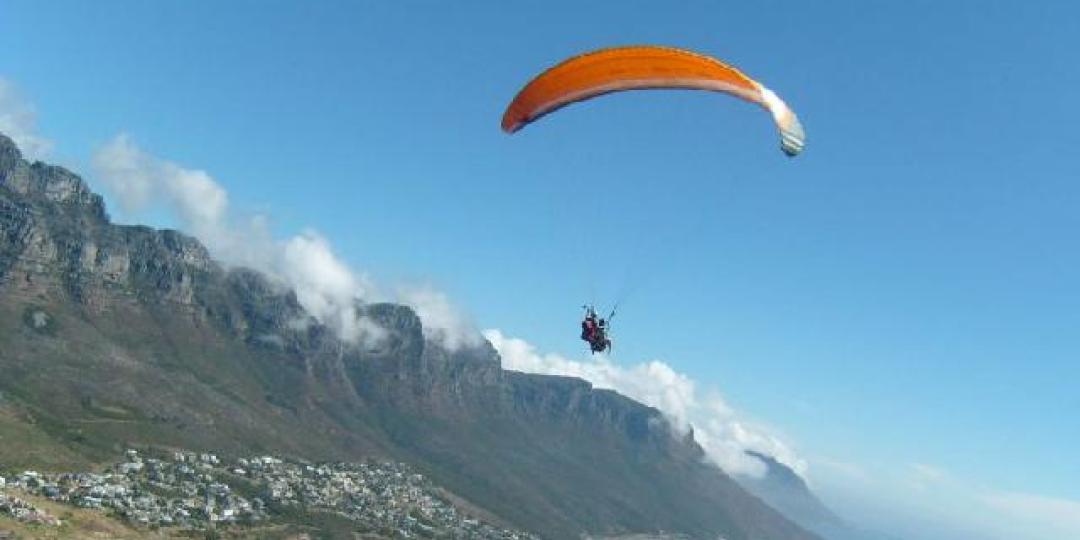Adventure tourism is one of the fastest growing travel sectors across the globe. With no shortage of adventurous activities, Africa is ideally positioned to package unique safari offerings with aspects to thrill. Liesl Venter finds out more.
A report by Allied Market Research published in February, shows the global adventure tourism market is projected to show compound annual growth of 17.4% between 2016 and 2023.
The opportunities for travel to remote, exotic areas, including unique and challenging experiences, are huge in Africa, says Howard Owen, Operations Product Manager at Wilderness Safaris, Private Journeys. “It is all about the adrenaline rush.”
Whether it’s caving, climbing, cycling, hiking, hunting, rafting or flying, activity is the name of the game. Africa has endless activities to choose from, says Ross Kennedy, Africa Albida Tourism Chief Executive.

“At Victoria Falls alone there are more than 40 adventures to choose from,” he says. “White-water rafting, bungee jumping, a gorge swing or a canopy tour are among some of the top activities.”
At the same time, says Kennedy, access to the region has significantly improved with the new international airport at Victoria Falls. “This has so far created an additional 127 000 seats into Victoria Falls per annum.”
According to Mandisa Magwaxaza of Mantis Marketing, there is real demand for new ways to explore destinations. “We cater for the adrenaline junkies, of course, but for most of our guests, adventure is exploring the unknown, discovering hidden gems, and being given new ways to enjoy traditional activities, sights and wonders in each destination.”
Brad Crockett, Butterfield & Robinson’s Region Director, Asia and Africa, says the African adventure tourism offering, including wildlife on safari, is getting better all the time.
Extraordinary elements
Travellers are increasingly looking for an experience, says Owen. This does not necessarily mean that every day needs to be filled with adventure activities.
“Traditional safaris consist of the usual game drives and game viewing, but the adventure safari is somewhat out of the norm,” says Saskia Brown, sales and marketing manager at Kwandwe Private Game Reserve. “It is about adding an element of adrenaline and is certainly more active than just sitting in a vehicle for three hours.”
Henk Graaff, Managing Director of SW Africa, says it is no longer about the mere “viewing of animals” although he believes all safaris should be offered as an adventure. “Whether travellers are opting for an overland camping safari or a luxury safari, the fact of having a close encounter with wildlife and walking in the wilderness is an adventure in itself.
Says Magwaxaza: “In a world that mass produces sameness and insta-perfect holiday moments, travellers would like to curate life-affirming experiences that connect them to the essence of African destinations, their people and cultures.”
Jaco van der Westhuizen of BushTrails says adventure safaris often follow the regular safari routes. Adventure travellers still want to visit the same safari destinations and locations and see the animals. “What we would usually term ‘normal’ safari activities are then complemented by a great number of adventure activities, such as white-water rafting, mountain biking, paragliding, abseiling, hiking up mountains and down canyons.”
Says Brown: “We find that more guests are opting to do Big Game walks, for example, rather than just opting for the game drive. These walks involve a professionally qualified and experienced trails guide and tracker taking guests out on foot, whether to view large game such as Black and White rhino, elephant or buffalo, or simply absorb the beauty of nature while walking through the fascinating environments.”

She says interest in eco-tourism is closely linked to the adventure safari. “Kwandwe’s rhino conservation safari, for example, offers guests the opportunity to participate in our exciting rhino-darting, notching and DNA sampling process for conservation purposes, under the supervision of experts. The participants then join the specialist ranger team and wildlife vet on the ground and play their role in administering any further medication, taking measurements for scientific and medical purposes and monitoring the animal while it is under sedation. They will also have an opportunity to drill the rhino horns for the insertion of microchips and perform ear-notching procedures for future identification – both essential tasks to ensure the preservation of these vulnerable animals.”
Crockett says an adventure safari constitutes anything that does not involve sitting in a vehicle. “We incorporate walking and biking into the safari, but we also believe that it is not just about the animals. There are some great places, especially in South Africa and Zimbabwe where you can get off the beaten path and enjoy the true beauty of this country as opposed to just sitting in one or two locations to view wildlife and local game.”
According to Owen it is about doing something out of the ordinary that one would not necessarily do every day, which could be as simple as taking a ride in a helicopter with no doors.
With the Eastern Cape fast developing as a contender for safaris, combining its wildlife with the Western Cape’s adventure activities could be a great opportunity.
The addition of out-of-the-ordinary action also provides the ideal chance to grab the younger market, says Van der Westhuizen. “Adventure safaris are very appealing to the younger markets,” he says. “Over 80% of our adventure travellers are between the ages of 20 and 35.”
Crockett agrees, pointing out that the younger market is actively looking for the adventure component in their holiday, as are return guests to the continent and multi-generational families.























